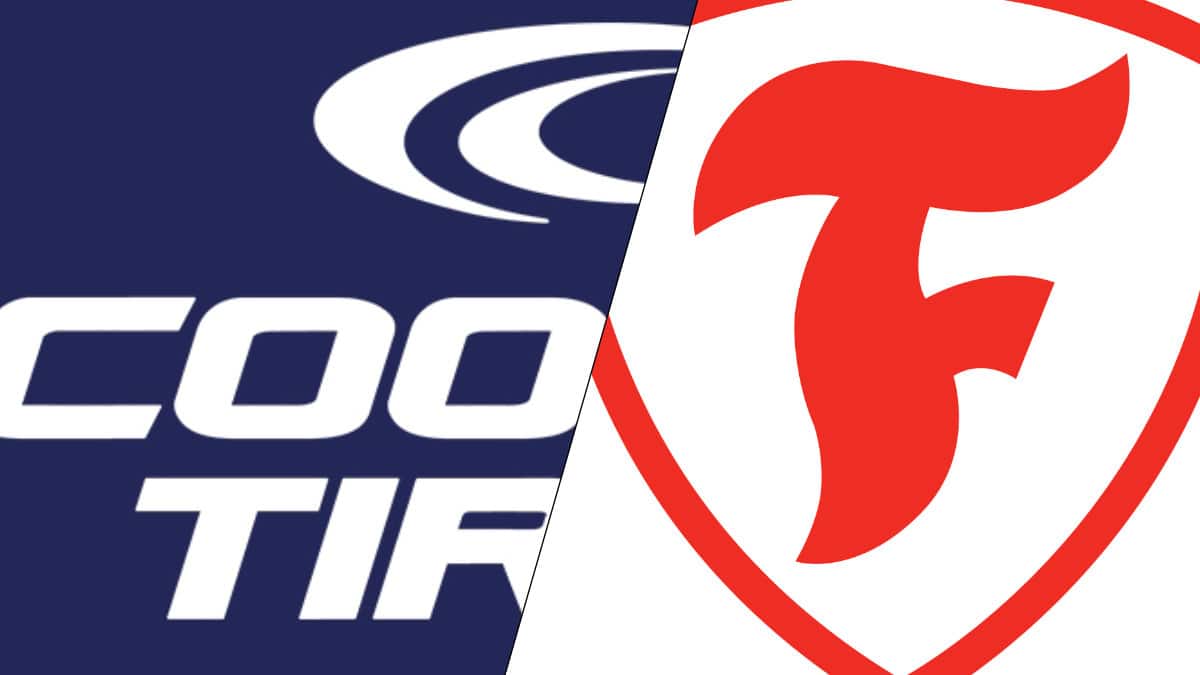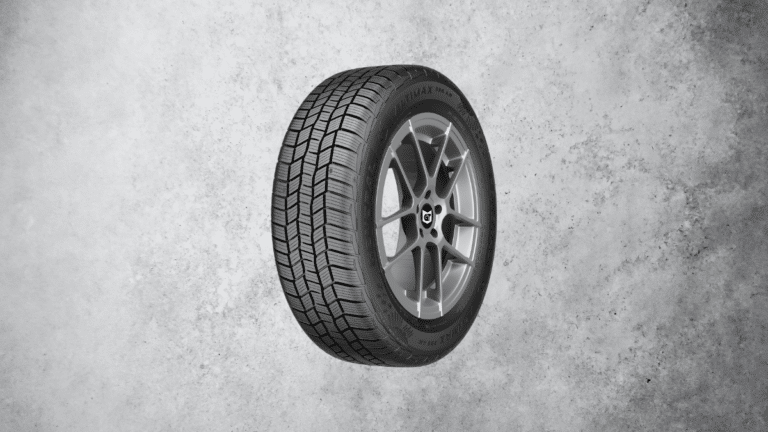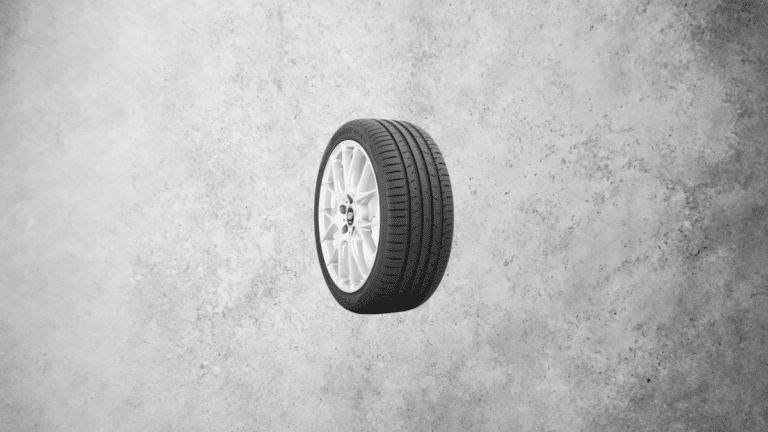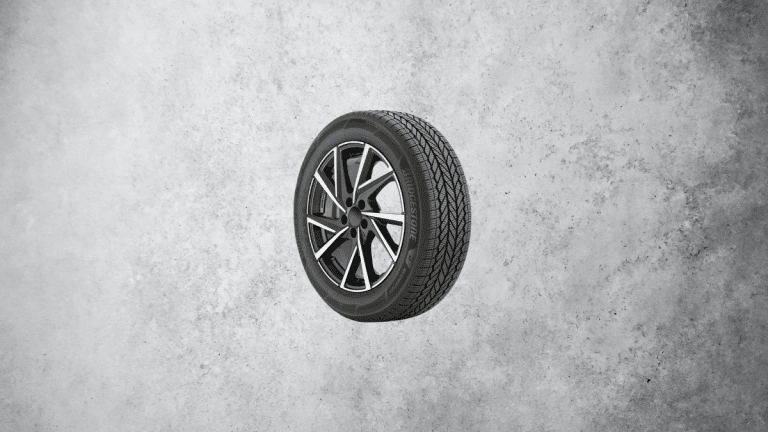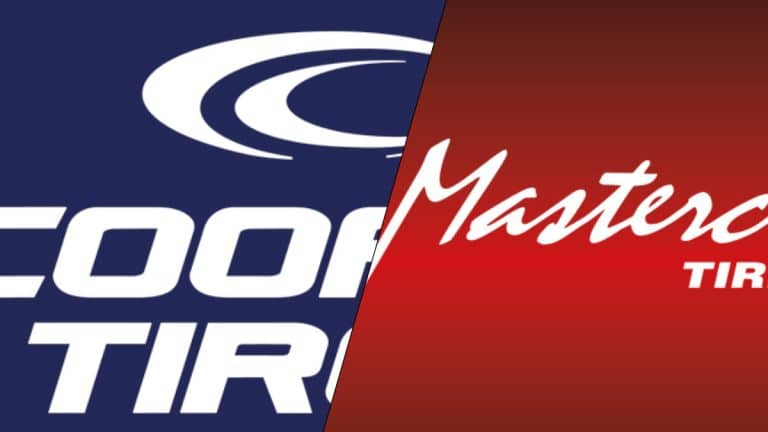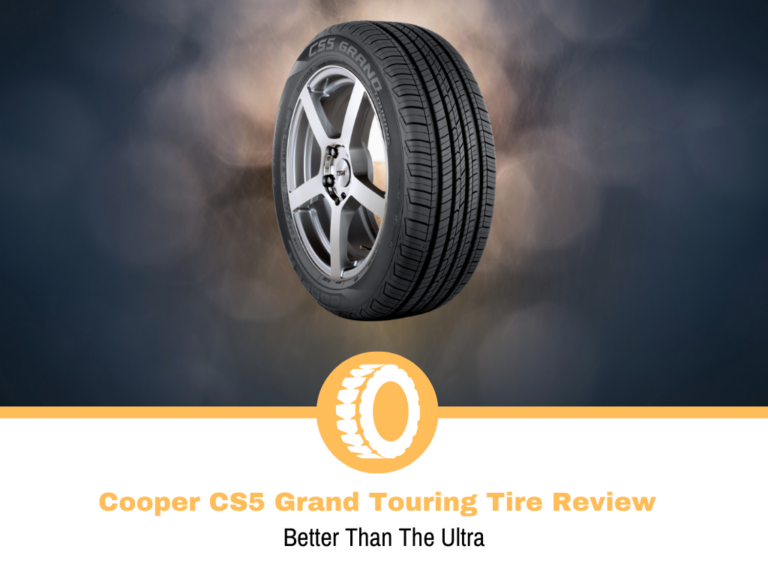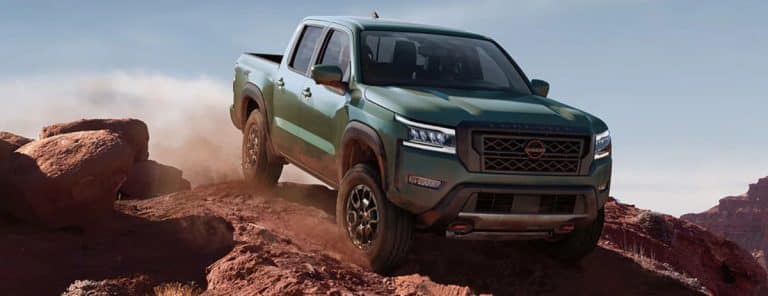Firestone vs Cooper Tires
Every tire is built differently. Some of them are made for everyday driving, while others excel when it comes to performance, stability, and traction. Still others are designed for off-roading. And there’s a fourth category of tires that shine in snow and ice.
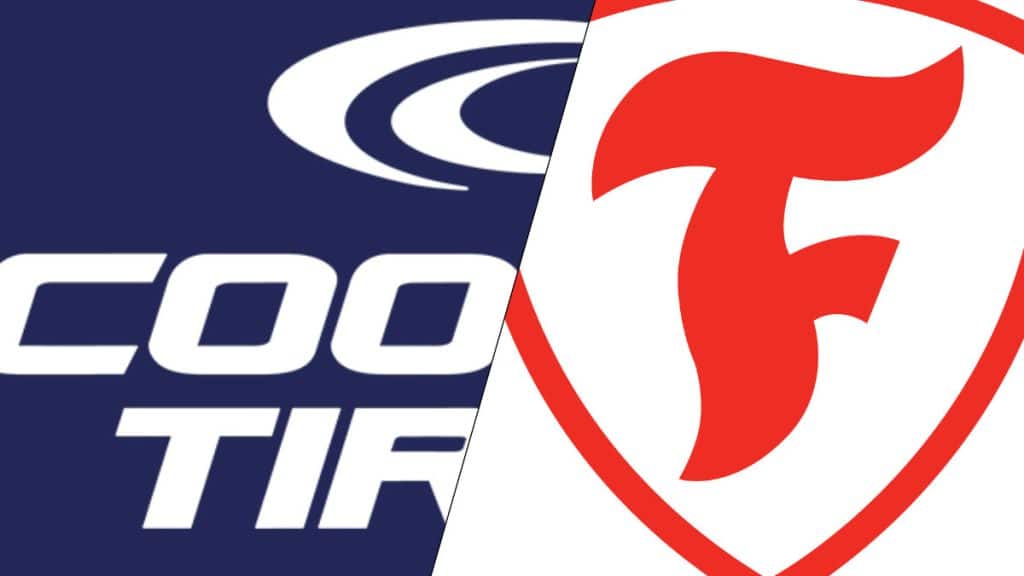
Firestone Rating: 4.7/5
Cooper Rating: 4.5/5
So it is with Firestone and Cooper tires. The former has burnished its reputation as a performance tire by offering enhanced steering response, maximum high-speed handling, and excellent traction in dry and wet conditions. That is why enthusiasts prefer Firestone tires.
Cooper, the 14th largest tire brand globally, isn’t as popular among the racing crowd. Instead, the bulk of its sales come from the everyday driving crowd. This market segment wants tires that could offer a comfortable and refined driving experience at an affordable price.
Everything said above should make one thing clear to you. That is that there aren’t many things that are common between Firestone and Cooper tires. While one of them enthralls with its high-speed stability, the other comforts drivers with its refined and noise-free performance.
Firestone History
Many people don’t know that Firestone and Cooper Tires have the same roots. Similar to its younger counterpart, Firestone Tire & Rubber Company was set up in Akron, Ohio. However, while Cooper came into being in 1914, Firestone was set up 13 years earlier, in 1901.
Firestone has always remained ahead of others on the technological front. The US tire brand was the first-ever to patent the idea of anti-skid tires. After being granted the patent, Firestone started manufacturing anti-skid tires on a large scale, changing the fate of the US automobile industry.
Anti-skid tires isn’t the only idea Firestone engineers came up with. The tire company is also the pioneer of low-pressure balloon-tires. These tires suffer much less wear than pneumatic tires, which were being used before their arrival on the scene. Low-pressure balloon tires also have a long road life.
In the ninth decade of its existence, the Firestone Tire & Rubber Company was acquired by Bridgestone. This acquisition turned Bridgestone into one of the world’s biggest tire companies, while giving Firestone a large number of production sites in Asia, Africa, and other locations.
Firestone Tires Families
Firestone divides its tires into six categories. These include Destination, WeatherGrip, Firehawk, Transforce, All-Season and Winter Force. Let’s discuss them in detail.
Destination
The Firestone Destination family is designed to meet the requirements of every driver. If you spend most of your time behind the wheel on the highway, the Destination LE3 has what you’re looking for. This tire’s road manners and treadlife warranty help it compete with the premium models.
Conversely, if you have a knack of off-roading, the Destination A/T2, M/T2, and X/T have your back. Each of these tires come with a stiff and puncture-resistant sidewall to minimize mid-journey stops. Their flexible tread compounds and unique tread designs help them grip in slush and mud.
All-Season
Firestone’s All-Season family has only one tire. The All-Season comes with a road-friendly tread compound to offer enhanced grip and traction in wet and dry conditions. Four circumferential and lateral grooves help with water evacuation, minimizing the risk of hydroplaning.
A symmetric tread pattern is to credit for this model’s enhanced grip in wet conditions. However, there is one area where this tire disappoints. At a time when sky is the limit for all-season tires’ warranties, a 65,000 mileage warranty seems to me on the smaller side.
WeatherGrip
The Firestone WeatherGrip tire is meant to keep your vehicle stable in harsh wintry conditions. A super-flexible tread compound, multiple sipes on the tread area, and durable internal construction – this tire has everything you may expect from a dedicated winter tire.
The WeatherGrip also comes with a 65,000-mile treadwear warranty. For the sake of comparison, the Bridgestone Blizzak WS90, one of the best winter tires on the market, comes with no treadwear warranty at all. That too while costing more than twice as much as the WeatherGrip.
Firehawk
Two tires complete the Firestone Firehawk series. The first, titled Firehawk AS, comes with an all-season tread compound. This might not be the best feature any high-performance tire could have. Yet, if you aren’t an enthusiast, this ‘flaw’ shouldn’t bother you too much.
However, if you want a dedicated high-performance tire, the Firehawk Indy 500 has your back. From the street to the race track, this tire carries a legendary reputation due to its extreme high-speed stability and amazing cornering performance. That too while costing less than premium UHP tires.
WinterForce
Multiple biting edges on the tread area, ability to retain snow to offer enhanced traction, and multiple channels for water evacuation – these are some of the features which define all four members of the Firestone WeatherForce family.
How does the WinterForce tires compare with their WeatherGrip counterparts? This question is relevant because both families consist of winter tires. As it turns out, Firestone doesn’t provide any treadwear warranty with its WinterForce tires.
Transforce
The Firestone Transforce tires are built to handle and carry massive loads. All three members of this lineup – AT2, CV, HT2 – feature double-ply or added construction. The AT2 is built for SUVs and CUVs; the HT2 for cars, crossovers and SUVs; the CV for Euro Commercial Vans.
Cooper Tires History
Cooper is the younger of the two by a decade. The US tire company was founded in 1914 in Akron, Ohio, but its name was M and M Manufacturing back then. What’s more, for the first seven years of its existence, the company’s product catalog didn’t include tires.
All of that changed in 1921. This was the year in which Cooper’s founders decided to acquire Giant Tire & Rubber Company and shift the headquarters to Findlay. The merging of the two companies saw the addition of tires in the product lineup and, eventually, a name change.
Cooper Tire & Rubber Company was thus born. Right from its first day, the tire brand distinguished itself from established players by offering quality tires at an affordable price. This was a difficult balance to strike, as quality and performance are often intertwined, but Cooper managed to do it.
Had that not been the case, and Cooper had failed to hit the sweet spot between price and performance, it wouldn’t have become the giant it is today. At the time of writing, the US tire brand ranks 14th in terms of worldwide sales, with its sales in 2021 topping the $2 billion mark.
Cooper’s Tire Families
Seven families complete Cooper’s tire lineup. These are Endeavor, WeatherMaster, Zeon, Discoverer, CS, WM and Evolution. Let’s discuss all of them in detail.
Endeavor
Cooper’s Endeavor lineup is populated by all-season touring tires. There are only three tires in this family, with Cooper Endeavor being the pioneer. This model has been designed to fit passenger cars. It comes with an excellent treadlife warranty and offers decent dry/wet traction.
Next comes the Endeavor Tour, which is also aimed at passenger cars and is thus a competitor of its predecessor. However, this tire features the latest technologies and is the pricier of the two. Finally, we have the Endeavor Tour, an all-season touring option for SUVs and CUVs.
CS
One glance at their respective feature lists might be enough to convince anyone that the Cooper CS and Endeavor families are same in everything but name. After all, both these lineups offer all-season touring tires for passenger cars, CUVs and SUVs. And their treadlife warranties are also similar.
It is only when you dig deep that the differences begin to emerge. Unlike the Endeavor lineup, which offers only three tires, the CS family has no room for a new member. It offers four tires from CS1 to CS4. The uber-popular CS5 Grand Touring and Ultra Touring are also members. Plus, you have the CS7.
Zeon
Cooper’s Zeon tires prefer performance over everything else. These tires are designed to offer an enhanced steering response, maximum high-speed stability and superb cornering performance. All in all, these tires have everything enthusiasts look for in performance tires.
The Zeon RS3-G1, RS3-S, and RS3-A are designed to be installed on passenger cars. The Zeon LTZ, meanwhile, can be fitted on SUVs and CUVS. All four tires are designed to offer enhanced handling in summer conditions, with only the LTZ capable of handling light off-roading.
WM
All the Cooper tire families discussed above were meant for dry and wet conditions. None of them is dedicated for harsh wintry conditions, an area where the WM tires excel. Every member of this family has the ability to safely carry you from point A to point B on snow and ice.
There are two tires in this lineup. The WM SA2+ is made for passenger cars and comes in three models, with the H- and V-rated models ideal for larger passenger cars and the T-rated tire for smaller cars. The WM tire, meanwhile, can be installed on a light truck or an SUV.
WeatherMaster
Similar to the WM tires, the WeatherMaster family also comprises dedicated winter tires. Unlike them, however, both the members of this family – the WeatherMaster WSC and WSC 4×4 – are designed to be installed on SUVs or light trucks. So, passenger car owners should look elsewhere.
Both these tires have been pinned for studs for extreme weather performances. The duo is also severe-weather rated, meaning you could count on it to safely carry you through a snowstorm. Unfortunately, neither is capable to offer surefooted driving off-the-road.
Discoverer
The Discoverer family has more members alone than any two other Cooper families put together. So, there is no shortage of options here. All these tires are backed by generous warranties, belying the myth that budget tires don’t take long to break down.
Passenger car drivers can turn their attention to the Discoverer All-Season and Winter. Both these tires are offered in various sizes to fit a large number of vehicles. SUV and CUV owners can look at XLT, ATT, AT3 Sport, and AT3 LT. Off-roaders can choose from the STT Pro and S/T MAXX.
Evolution
Just like the Discoverer family, Cooper’s Evolution lineup is also well-stocked. Whether you’re looking for an all-season touring tire, mud-terrain tire, performance tire, or winter tire, and regardless of the vehicle you may be driving (passenger cars, SUVs, light trucks, CUVs), there’s an Evolution tire waiting for you.
Firestone Vs Cooper Tires: Differences
Here are the major differences between Firestone and Cooper tires:
Performance
Not many brands can compete with Firestone when it comes to performance.
Cooper is no exception. Mainly because the Firehawk Indy 500 is one of the best street and track performance tires money can buy. Whether it is high-speed handling, steering response or cornering performance, the Indy 500 won’t let Cooper tires get near it.
Availability of Options
There’s no winner as far as the availability of options is concerned.
Both these brands have their manufacturing facilities set up in the United States, as well as in China, Europe and rest of the world. This allows them to meet the demands of drivers like you, regardless of whether you need tires for a passenger car, SUV, CUV, sport coupes, or light trucks.
Price and Warranty
Cooper tires are cheaper of the two and come with generous warranties.
Some of Cooper’s all-season tires come with as much as 80,000-mile warranties. That isn’t the case with Firestone tires. The biggest warranty you can get on a Firestone tire is 70,000 miles. The 10,000 miles difference means that, at least in theory, Cooper tires should last one extra year.
Advantages of Firestone
- Produces better high-performance tires
- Offers tires for almost every season and every vehicle
- HP tires don’t cost as much as those from premium brands
Advantages of Cooper
- Offers budget-friendly tires
- Backs its models with generous treadwear warranties
- Has tires for almost every condition
Firestone Vs Cooper Tires: Which Brand to Choose?
If you are on the lookout for performance tires, Firestone has everything you need. However, if you’re a daily driver and want a set of tires that won’t blow your budget, Cooper tires might be your best bet.
